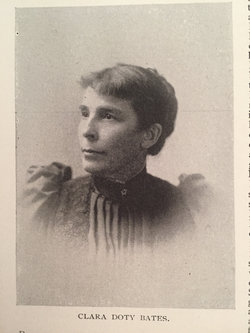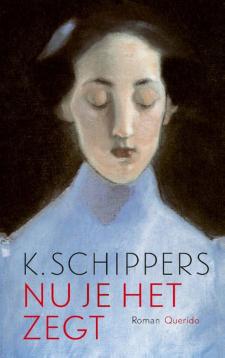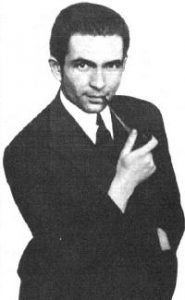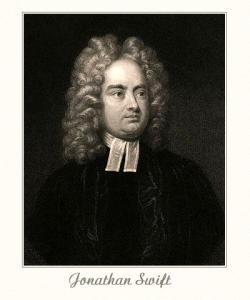Fleurs du Mal Magazine



Cinderella
Poor, pretty little thing she was,
The sweetest-faced of girls,
With eyes as blue as larkspurs,
And a mass of tossing curls;
But her step-mother had for her
Only blows and bitter words,
While she thought her own two ugly crows,
The whitest of all birds.
She was the little household drudge,
And wore a cotton gown,
While the sisters, clad in silk and satin,
Flaunted through the town.
When her work was done, her only place
Was the chimney-corner bench.
For which one called her “Cinderella,”
The other, “Cinder-wench.”
But years went on, and Cinderella
Bloomed like a wild-wood rose,
In spite of all her kitchen-work,
And her common, dingy clothes;
While the two step-sisters, year by year,
Grew scrawnier and plainer;
Two peacocks, with their tails outspread,
Were never any vainer.
One day they got a note, a pink,
Sweet-scented, crested one,
Which was an invitation
To a ball, from the king’s son.
Oh, then poor Cinderella
Had to starch, and iron, and plait,
And run of errands, frill and crimp,
And ruffle, early and late.
And when the ball-night came at last,
She helped to paint their faces,
To lace their satin shoes, and deck
Them up with flowers and laces;
Then watched their coach roll grandly
Out of sight; and, after that,
She sat down by the chimney,
In the cinders, with the cat,
And sobbed as if her heart would break.
Hot tears were on her lashes,
Her little hands got black with soot,
Her feet begrimed with ashes,
When right before her, on the hearth,
She knew not how nor why,
A little odd old woman stood,
And said, “Why do you cry?”
“It is so very lonely here,”
Poor Cinderella said,
And sobbed again. The little odd
Old woman bobbed her head,
And laughed a merry kind of laugh,
And whispered, “Is that all?
Wouldn’t my little Cinderella
Like to go to the ball?
“Run to the garden, then, and fetch
A pumpkin, large and nice;
Go to the pantry shelf, and from
The mouse-traps get the mice;
Rats you will find in the rat-trap;
And, from the watering-pot,
Or from under the big, flat garden stone,
Six lizards must be got.”
Nimble as crickets in the grass
She ran, till it was done,
And then God-mother stretched her wand
And touched them every one.
The pumpkin changed into a coach,
Which glittered as it rolled,
And the mice became six horses,
With harnesses of gold.
One rat a herald was, to blow
A trumpet in advance,
And the first blast that he sounded
Made the horses plunge and prance;
And the lizards were made footmen,
Because they were so spry;
And the old rat-coachman on the box
Wore jeweled livery.
And then on Cinderella’s dress
The magic wand was laid,
And straight the dingy gown became
A glistening gold brocade.
The gems that shone upon her fingers
Nothing could surpass;
And on her dainty little feet
Were slippers made of glass.
“Be sure you get back here, my dear,
At twelve o’clock at night,”
Godmother said, and in a twinkling
She was out of sight.
When Cinderella reached the ball,
And entered at the door,
So beautiful a lady
None had ever seen before.
The Prince his admiration showed
In every word and glance;
He led her out to supper,
And he chose her for the dance;
But she kept in mind the warning
That her Godmother had given,
And left the ball, with all its charm.
At just half after eleven.
Next night there was another ball;
She helped her sisters twain
To pinch their waists, and curl their hair,
And paint their cheeks again.
Then came the fairy Godmother,
And, with her wand, once more
Arrayed her out in greater splendor
Even than before.
The coach and six, with gay outriders,
Bore her through the street,
And a crowd was gathered round to look,
The lady was so sweet,–
So light of heart, and face, and mien,
As happy children are;
And when her foot stepped down,
Her slipper twinkled like a star.
Again the Prince chose only her
For waltz or tete-a-tete;
So swift the minutes flew she did not
Dream it could be late,
But all at once, remembering
What her Godmother had said,
And hearing twelve begin to strike
Upon the clock, she fled.
Swift as a swallow on the wing
She darted, but, alas!
Dropped from one flying foot the tiny
Slipper made of glass;
But she got away, and well it was
She did, for in a trice
Her coach changed to a pumpkin,
And her horses became mice;

And back into the cinder dress
Was changed the gold brocade!
The prince secured the slipper,
And this proclamation made:
That the country should be searched,
And any lady, far or wide,
Who could get the slipper on her foot,
Should straightway be his bride.
So every lady tried it,
With her “Mys!” and “Ahs!” and “Ohs!”
And Cinderella’s sisters pared
Their heels, and pared their toes,–
But all in vain! Nobody’s foot
Was small enough for it,
Till Cinderella tried it,
And it was a perfect fit.
Then the royal heralds hardly
Knew what it was best to do,
When from out her tattered pocket
Forth she drew the other shoe,
While the eyelids on the larkspur eyes
Dropped down a snowy vail,
And the sisters turned from pale to red,
And then from red to pale,
And in hateful anger cried, and stormed,
And scolded, and all that,
And a courtier, without thinking,
Tittered out behind his hat.
For here was all the evidence
The Prince had asked, complete,
Two little slippers made of glass,
Fitting two little feet.
So the Prince, with all his retinue,
Came there to claim his wife;
And he promised he would love her
With devotion all his life.
At the marriage there was splendid
Music, dancing, wedding cake;
And he kept the slipper as a treasure
Ever, for her sake.
Clara Doty Bates
(1838 – 1895)
Cinderella
Versified by Mrs. Clara Doty Bates
fleursdumal.nl magazine
More in: Archive A-B, Archive A-B, Bates, Clara Doty, Children's Poetry, Grimm, Andersen e.o.: Fables, Fairy Tales & Stories, Tales of Mystery & Imagination
‘De taal is m’n zuurstof, als ik iets beschrijf, ben ik er.’
 Dat denkt K. Schippers terwijl hij in Londen een adres zoekt. Hij vergist zich, loopt in een verkeerd deel van de stad, waar een straat toevallig dezelfde naam heeft. Een ondertitelaarster, een schilder uit Vietnam en andere voorbijgangers proberen hem te helpen zoeken. Komt hij samen met hen in het leven van de taal terecht?
Dat denkt K. Schippers terwijl hij in Londen een adres zoekt. Hij vergist zich, loopt in een verkeerd deel van de stad, waar een straat toevallig dezelfde naam heeft. Een ondertitelaarster, een schilder uit Vietnam en andere voorbijgangers proberen hem te helpen zoeken. Komt hij samen met hen in het leven van de taal terecht?
In een wereld vol motto’s en letterspelen leiden ze hem naar iets heel anders dan de gezochte straat. Vlak bij zee, aan de Nederlandse kust, ontdekt hij de bronnen van de taal. Het is alsof ‘de woorden die ons op de laatste paar bladzijden ter wille zijn geweest, niet anders konden dan ons hierheen brengen’. Bij K. Schippers raakt de taal zelf betoverd – met talrijke foto’s en tekeningen als bewijs.
K. Schippers (Amsterdam, 1936) is schrijver, dichter, essayist en kunstcriticus. Hij heeft een omvangrijk oeuvre op zijn naam staan, dat bestaat uit romans, poëzie, essays, verhalen & beschouwingen, en een enkel kinderboek. Al vroeg werd hij bekend door het literaire tijdschrift Barbarber, dat hij in 1958 samen met J. Bernlef en G. Brands oprichtte. Hij introduceerde de readymade als poëzievorm. Van het cultureel tijdschrift Hollands Diep, dat van 1975 tot 1977 bestond, was hij een van de oprichters en eerste redacteuren. Zijn werk is veel gelauwerd. Voor zijn poëzie ontving hij in 1996 de P.C. Hooftprijs. Een jaar later kreeg hij de Pierre Bayle-Prijs voor zijn kunstkritieken. Zijn roman Poeder en wind (1996) werd genomineerd voor de Generale Bank Literatuurprijs; de roman Waar was je nou (2005) werd bekroond met de Libris Literatuur Prijs en groeide uit tot een bestseller. Hij is de schrijver van Buiten beeld, het Poëziegeschenk van de Poëzieweek 2014.
K. Schippers
(Gerard Stigter, 1936)
Uitgeverij: Querido
NUR: 301
Paperback
ISBN: 9789021428420
Publicatiedatum: 03-06-2021
Prijs: € 18,99
• fleursdumal.nl magazine
More in: - Book Lovers, - Book News, - Book Stories, Archive S-T, Archive S-T, Art & Literature News, Boekenweek, K. Schippers, Schippers, K.

Gulden Sporen
Negentienhonderd Zestien
In dertienhonderd en twee
beken naar de stroom, stromen naar de zee,
zó de verdedigers van het vlaamse-gemeente-sisteem, sterk in de strijd,
wal, tegen de aanval van de franse leenroerigheid;
zee-wal, pal, als de Rode Zee ten tijde van de Eksode
was, tocht van godsvolk naar Kanaäan, tocht der Joden.
Maar negentienhonderd zestien
zal, zij aan zij,
pal, rij op rij,
het aktieve leger groeien zien,
tot een wil en tot een daad,
gekromd de rug en vuist gebald, die de vijand slaat
en de nacht; breekt de dag door dageraad.
Negentienhonderd zestien, jaar dat woord werd,
woord dat vlees werd,
leger van ons land,
wachtersdaad bij wachterswoord en -hand.
Vastberaân, wij staan
in kamp. Wij staan.
… Ik en de stad …
Paul van Ostaijen
(1896 – 1928)
Gulden Sporen
Negentienhonderd Zestien
• fleursdumal.nl magazine
More in: Archive O-P, Archive O-P, Ostaijen, Paul van, Paul van Ostaijen

A Love Song
In The Modern Taste
Fluttering spread thy purple pinions,
Gentle Cupid, o’er my heart:
I a slave in thy dominions;
Nature must give way to art.
Mild Arcadians, ever blooming
Nightly nodding o’er your flocks,
See my weary days consuming
All beneath yon flowery rocks.
Thus the Cyprian goddess weeping
Mourn’d Adonis, darling youth;
Him the boar, in silence creeping,
Gored with unrelenting tooth.
Cynthia, tune harmonious numbers;
Fair Discretion, string the lyre;
Sooth my ever-waking slumbers:
Bright Apollo, lend thy choir.
Gloomy Pluto, king of terrors,
Arm’d in adamantine chains,
Lead me to the crystal mirrors,
Watering soft Elysian plains.
Mournful cypress, verdant willow,
Gilding my Aurelia’s brows,
Morpheus, hovering o’er my pillow,
Hear me pay my dying vows.
Melancholy smooth Meander,
Swiftly purling in a round,
On thy margin lovers wander,
With thy flowery chaplets crown’d.
Thus when Philomela drooping
Softly seeks her silent mate,
See the bird of Juno stooping;
Melody resigns to fate.
Jonathan Swift
(1667 – 1745)
A Love Song
In The Modern Taste
1733
• fleursdumal.nl magazine
More in: Archive S-T, Archive S-T, Swift, Jonathan

A dressed man
and a naked man
A dressed man and a naked man
Stood by the kip-house fire,
Watching the sooty cooking-pots
That bubble on the wire;
And bidding tanners up and down,
Bargaining for a deal,
Naked skin for empty skin,
Clothes against a meal.
‘Ten bob it is,’ the dressed man said,
‘These boots cost near a pound,
This coat’s a blanket of itself.
When you kip on the frosty ground.’
‘One dollar,’ said the naked man,
‘And that’s a hog too dear;
I’ve seen a man strip off his shirt
For a fag and a pot of beer.’
‘Eight and a tanner,’ the dressed man said,
‘And my life-work is yours,
All I’ve earned at the end of a life
Knocking at farmers’ doors;
Turnips, apples, hops and peas,
And the spike when times are slack,
Fifty years I’ve tobied it
For these clothes upon my back.’
‘Take seven,’ said the naked man,
‘It’s cold and the spikes are shut;
Better be naked here in kip
Than dressed in Lambeth Cut.’
‘One tanner more,’ the dressed man said,
‘One tanner says the word,
Off comes my coat of ratcatcher
And my breeches of velvet cord;
Now pull my shirt over my head,
I’m naked sole to crown,
And that’s the end of fifty years
Tobying up and down.’
A minute and they had changed about,
And each had his desire;
A dressed man and a naked man
Stood by the kip-house fire.
George Orwell
(1903 – 1950)
The Adelphi Magazine. October 1933
• fleursdumal.nl magazine
More in: Archive O-P, Archive O-P, George Orwell, Orwell, George
Thank you for reading Fleurs du Mal - magazine for art & literature